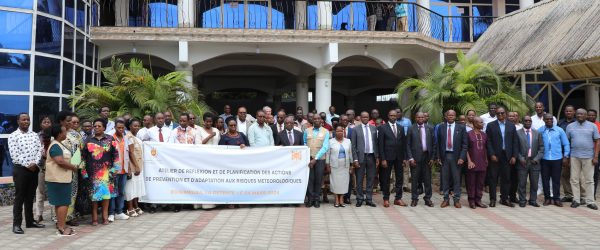In collaboration with Inades-Formation Burundi, the 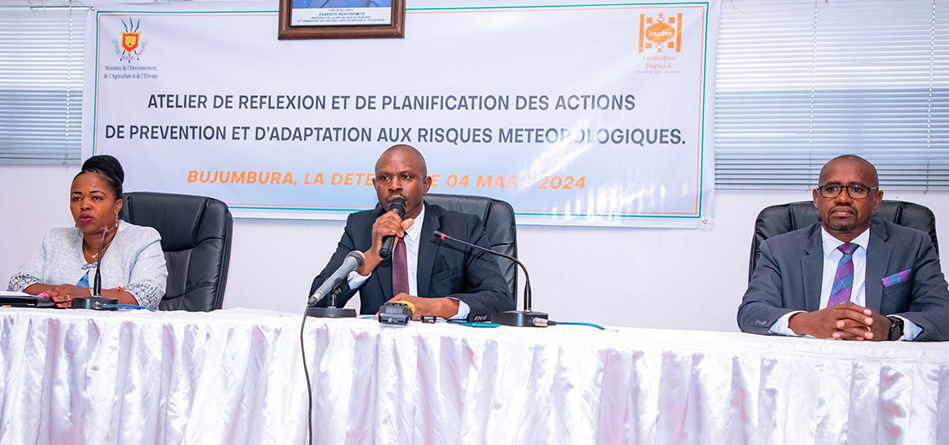 Ministère de l’Environnement, de l’Agriculture et de l’Elevage “MINEAGRIE” organized a workshop on Monday, March 4, 2024, to reflect on and plan actions to prevent and adapt to meteorological risks, primarily for the 2024B and 2024C seasons. The workshop was attended by His Excellency, Mr Ir DODIKO Prosper, Minister of MINEAGRIE. Surrounded by the Director of Inades-Formation Burundi and the Delegate of the Mayor of Bujumbura, in his opening speech the Minister acknowledged the frank collaboration with his partners. It fosters synergy in response to meteorological risks and climate change.
Ministère de l’Environnement, de l’Agriculture et de l’Elevage “MINEAGRIE” organized a workshop on Monday, March 4, 2024, to reflect on and plan actions to prevent and adapt to meteorological risks, primarily for the 2024B and 2024C seasons. The workshop was attended by His Excellency, Mr Ir DODIKO Prosper, Minister of MINEAGRIE. Surrounded by the Director of Inades-Formation Burundi and the Delegate of the Mayor of Bujumbura, in his opening speech the Minister acknowledged the frank collaboration with his partners. It fosters synergy in response to meteorological risks and climate change.
Strong national participation
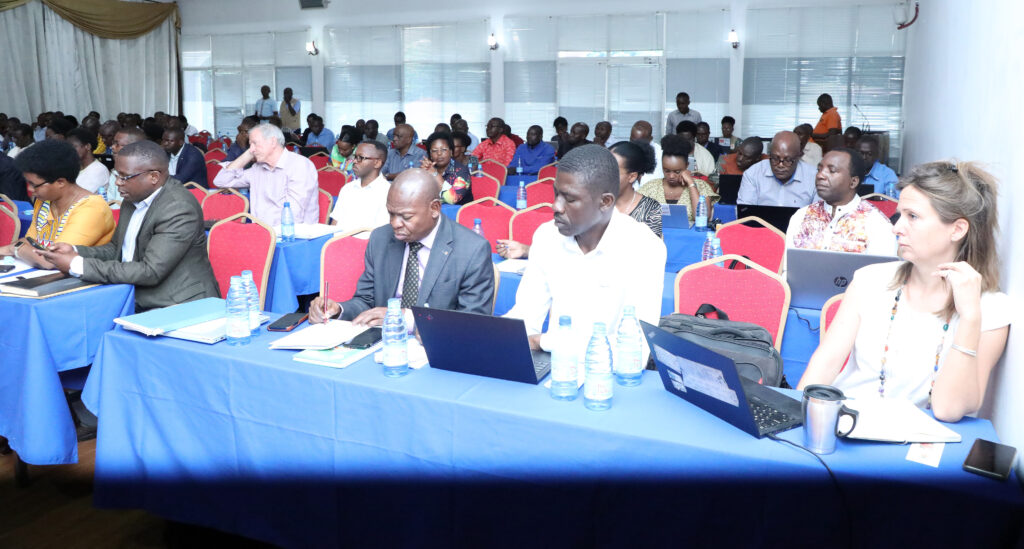
Participation was massive. These include senior officials from MINEAGRIE and other key sectoral ministries, the European Union, the World Bank, the African Development Bank, the Lake Tanganyika Authority, the WFP, international and national NGOs, farmers’ support organizations and members of the Groupe de Plaidoyer Agricole (GPA), researchers and university professors, and the media.
Climate risk forecasts and impacts
This mobilization was due to the workshop’s highly interesting subject matter. This is the presentation of the seasonal weather forecast note for March to May (MAM) 2024 by the Institut Géographique du Burundi “IGEBU”. This note raises concerns about risks in the agricultural, environmental and livestock sectors.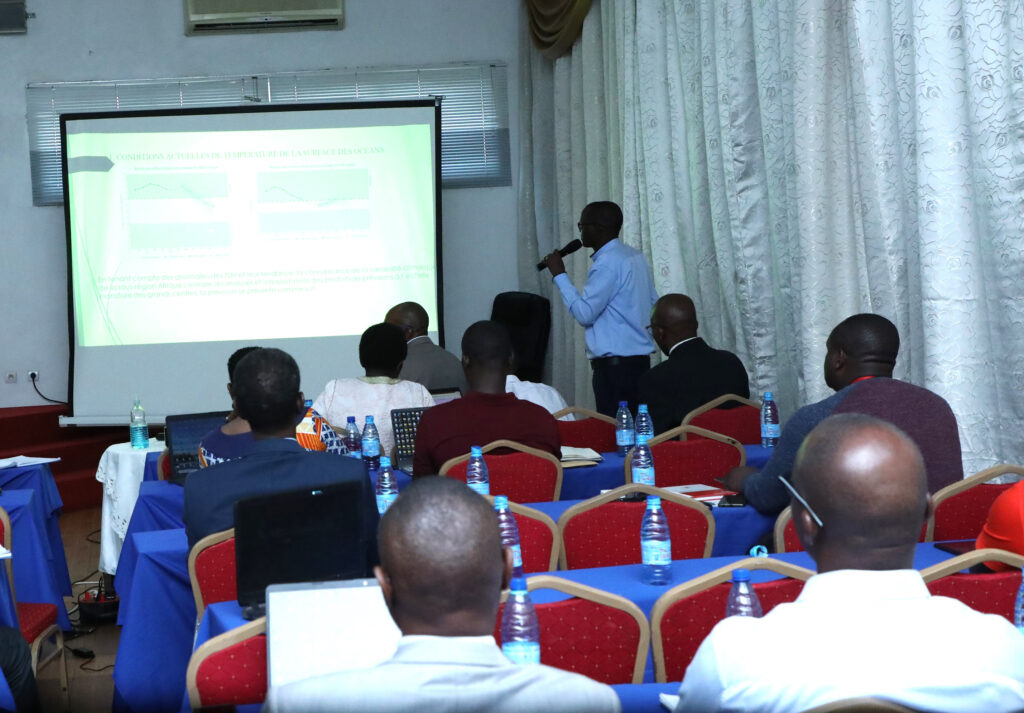
The note shows that rainfall will be in excess in most of the country, including the natural regions of Mugamba, Buyenzi and part of Mirwa. The rest of the country will have normal to surplus precipitation. Also, the forecast note shows that the end of the season is projected towards the end of May 2024 for the most part, and that temperatures will be above normal throughout the MAM 2024 period nationwide.
The implications are diverse. The person in charge of food safety at the Ministry presented the positive and negative implications of these forecasts in the different sectors, mainly in the agriculture and food safety sector, with a view to reflecting on actions to prevent and adapt to the likely risks.
The positive implications are (1) better prospects for improved agricultural performance following the increase in rainfall and consequently humidity over much of the country; (2) seasonal crops (beans, maize, soybeans, potatoes, sweet potatoes, vegetables, fruit trees, etc.) will have sufficient growing time and improved performance in the length of their maturity; (3) increased fodder for herbivorous animals; (4) reduced proliferation of caterpillars and other insects; (5) improved soil fertility.(3) increased fodder for feeding herbivorous animals; (4) reduced proliferation of army worms (maize) following favorable rainfall conditions; (5) increased livestock products such as milk, meat and other livestock by-products contributing to the improvement of the quality of life of farmers. 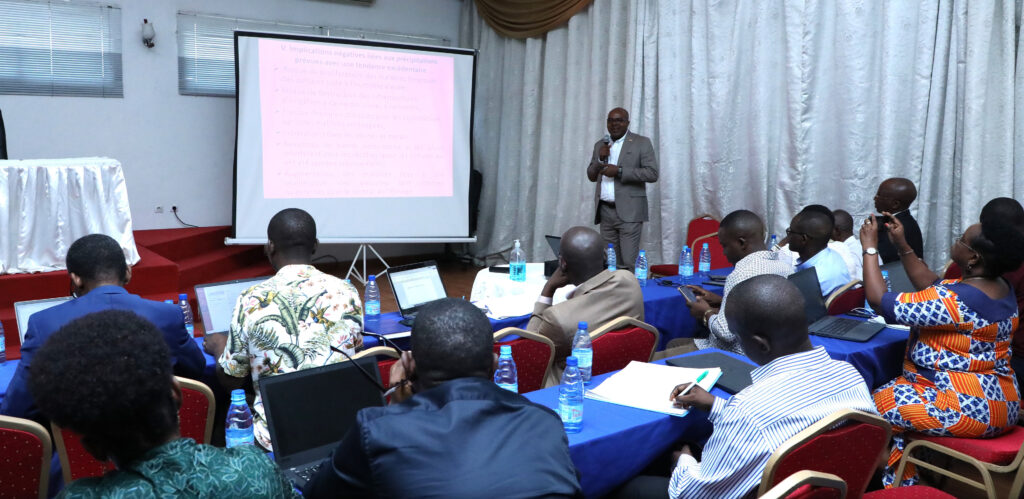 food security for the farmer.
food security for the farmer.
Among the negative implications mentioned are (1) the risk of proliferation of fungal crop diseases as a result of high humidity; (2) the risk of destruction of irrigation infrastructure due to torrential rains; (3) erosion of cultivable soil for poorly/undeveloped farms; (4) flooding of plains and marshes; (5) post-harvest losses if rains interfere with harvests (for crops that were sown early); (6) increase in diseases linked to a proliferation of both internal and external parasites for the livestock sector; (7) destruction of roads and bridges, which could make it difficult to supply markets with basic necessities, including foodstuffs; (8) landslides, which could spill onto roads and hinder the movement of goods and people; these landslides could also wash away crops grown in these areas; (8) continued rise in the waters of Lake Tanganyika, with a high probability of flooding homes on the lake’s shores and displacing the riverside population.
Proposals to minimize climate risks
Faced with this situation and based on its experience, Inades-Formation Burundi shared some practical measures for preventing and adapting to climate change.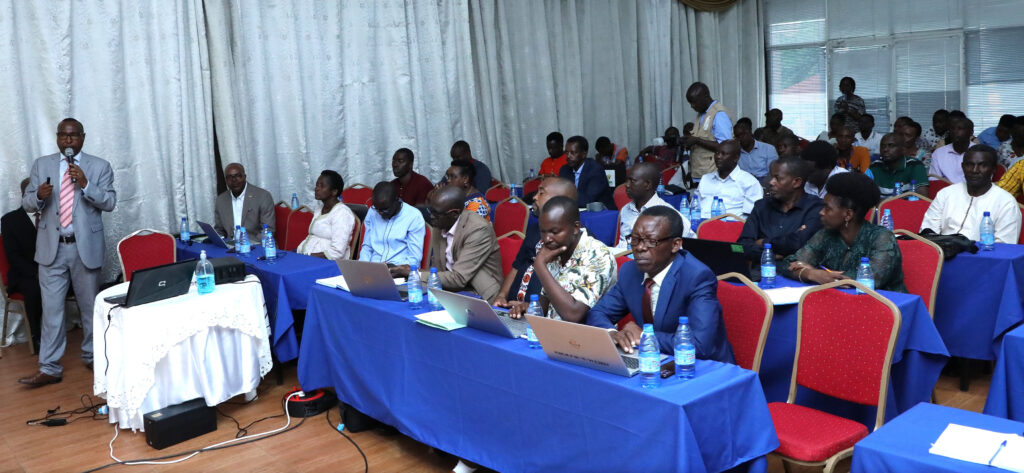
The head of programs at Inades-Formation Burundi, who spoke on the subject, referred exclusively to the practices promoted by the organization. The latter are generally linked to sustainable food systems based on Family Farming. He explained and illustrated the importance of some of the measures applied, namely multi-use agroforestry, integrated watershed management, and the promotion of family farming by intensifying the combination of crops, including those resistant to abundant rainfall.
In a context of heavy rainfall, the use of organic matter was recommended in fertilization, as it improves soil porosity and thus allows rainwater infiltration. Rational management of available production should be a prerequisite for the use of natural conservation methods. To name but a few. Before concluding his presentation, the representative of Inades-Formation Burundi called on all those involved in the agricultural sector, both public and private, to banish the bad practice of producing after destroying woodlands and forests, and instead align themselves with the principle of “Produce without destroying”.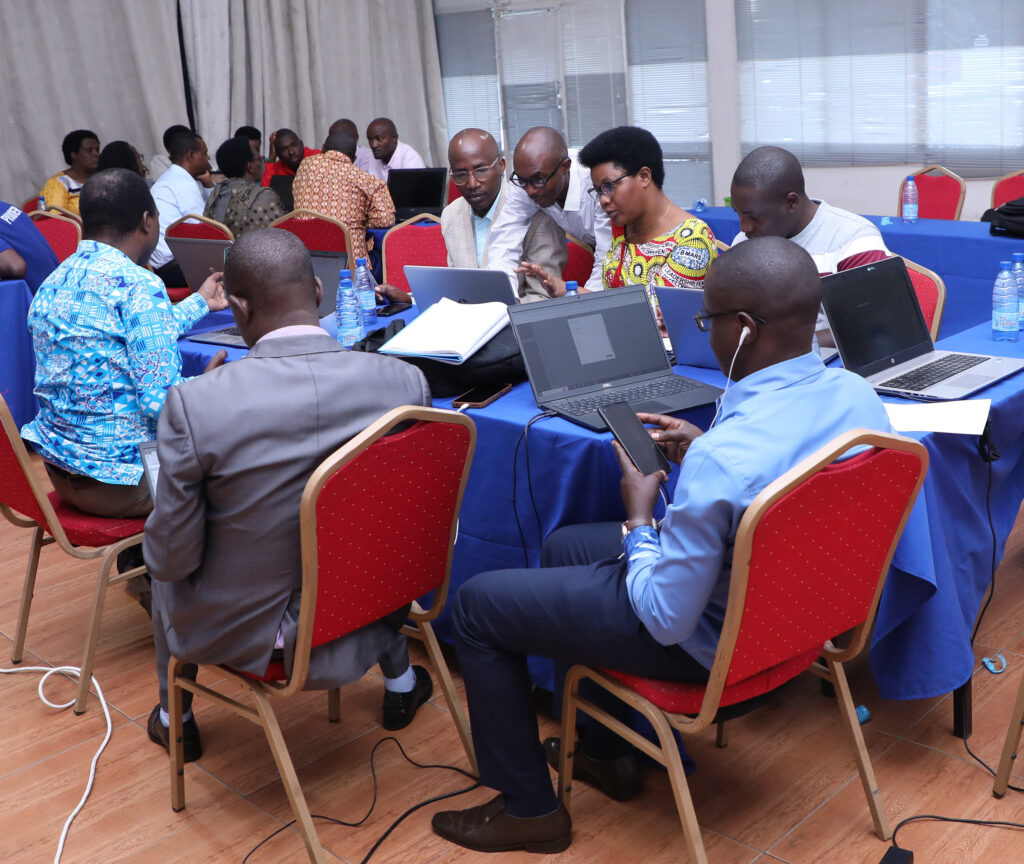
A small team made up of MINEAGRIE executives and partners, including Inades-Formation Burundi, was set up to work towards a comprehensive plan. The team compiled the actions proposed by the participants into a comprehensive plan to be presented to the various development partners involved in the support commitment.
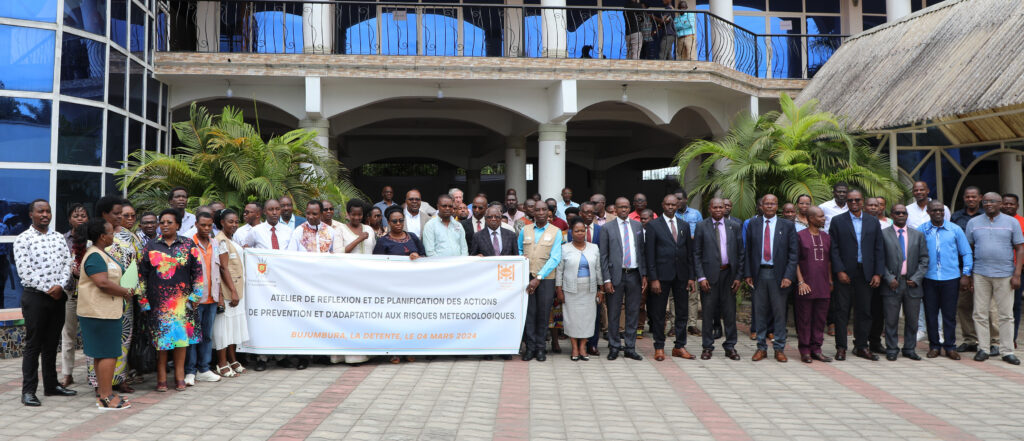
MINEAGRIE thanked Inades-Formation Burundi for its collaboration in organizing this event. The measures implemented by Inades-Formation Burundi to prevent and adapt to the effects of climate change were appreciated by the workshop participants.
Published by Richard HAVYARIMANA
Advocacy and Communication Officer

